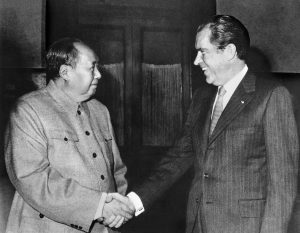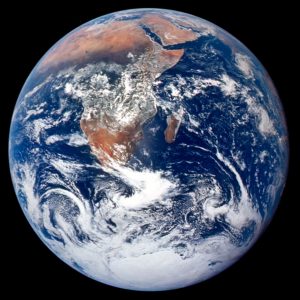Raised voices: why we must continue to listen

This week has been awful.
The news has been devastating and all consuming. But that feels like it’s becoming the norm.
In Belarus, our friends remain under attack – Andrei and Irina’s trial began on Monday. We have no idea of the outcome.
In Brazil, Dom Phillips and his colleague Bruno Araújo Pereira remain missing – but with reports of fresh blood being found, our hearts break for their loved ones.
In Ukraine, we see daily the death and destruction caused by the Russian invasion, up to 200 Ukrainian soldiers killed a day. And the reports of cholera in Mariupol are beyond my comprehension in the twenty-first century.
In Russia, the crackdown against dissidents continues unabated – with limited coverage. 160 people are currently defending criminal cases for anti-war statements and this week a close associate of Alexei Navalny was tried in absentia and placed on the international wanted list.
In the Philippines, Ferdinand Marcos Jr has been elected as the next President and made his first visit to the US as President-Elect – seemingly the legacy of his parents no longer an electoral or diplomatic issue.
In Hong Kong, six brave democracy protesters were arrested for the temerity of marking the anniversary of Tiananmen Square.
In the US – the inquiry into the Capitol Riot is officially underway – highlighting just how fragile our collective democracy is and how desperately we need to cherish and protect it.
And that’s before I even touch on what is happening in the UK, the ongoing political crises, and the ideologically incoherent approach to freedom of expression protections.
And in too many countries this is now framed through the prism of a cost-of-living crisis as a scale that we haven’t seen for a generation.
My only comfort is that we know what is happening. In a digital age it is very difficult for any leader, however repressive, to completely silence dissent about their domestic actions. The joy of a free press in democratic countries is that it enables us to be informed and to demand more and better – from our own leaders and from those that claim a global role. It enables us to analyse the scale of the threat and to try and prioritise our efforts in assisting those brave enough to stand against tyranny.
Index exists to provide a platform for the persecuted. We work every day with those who refuse to be silenced. The least we can do is listen to them and then join their fight.
1972: Nixon went to China, BBC banned McCartney and Index was published
[vc_row][vc_column][vc_column_text]

The first issue of Index on Censorship magazine, in March 1972.
You may have heard that the 70s were different. In 1972, when the first issue of Index magazine was launched, no one knew that 20 years later there would be an influential economic bloc called the European Union. The Beatles’ had only just split. The World Trade Center in New York was being built, while Sir Edward Heath was the prime minister of the United Kingdom.
Fifty years on and some things remain. Queen Elizabeth’s reign goes on and celebrates its 70th anniversary in 2022. Dictatorships and censorship, which should be trapped in history books, continue to torment the lives of many. And as a result, Index on Censorship remains vigilant, defending freedom of expression and giving voice to those who are silenced.
As we celebrate our 50th anniversary, we go back in time and remember the remarkable events that happened in 1972.[/vc_column_text][vc_custom_heading text=”1″][vc_column_text]January 30th: British soldiers shoot 26 unarmed civilians during a protest in Derry, Northern Ireland. Fourteen people were killed on this day known as “Bloody Sunday”. [/vc_column_text][vc_custom_heading text=”2″][vc_column_text]February 1st: Paul McCartney and the Wings release “Give Ireland back to the Irish” in the UK. It would be banned by the BBC, nine days later. [/vc_column_text][vc_custom_heading text=”3″][vc_column_text]February 5th: Airlines in the United States begin to inspect passengers and baggage. Tough to imagine that people traveled without any surveillance. [/vc_column_text][vc_custom_heading text=”4″][vc_column_text]February 17th: British Parliament votes to join the European Common Market. In 2020, the United Kingdom would leave the European Union. [/vc_column_text][vc_custom_heading text=”5″][vc_column_text]February 21st: Richard Nixon becomes the first US president to visit China, seeking to establish positive relations in a meeting with Chinese leader Mao Zedong, in Beijing.

Mao Zedong and Richard Nixon during Nixon’s historical visit to China in 1972. Photo: Ian Dagnall/Alamy
[/vc_column_text][vc_custom_heading text=”6″][vc_column_text]March 15th: The Godfather, starring Marlon Brando and Al Pacino, premieres in New York. It wins Best Picture and Best Actor (Brando) at the 45th Academy Awards.

Al Pacino and Marlon Brando in the Godfather. The first film of one the most successful franchises of all time was released in 1972. Photo: All Star Library/Alamy
[/vc_column_text][vc_custom_heading text=”7″][vc_column_text]June 18th: British European Airways Trident crashes after takeoff from Heathrow to Brussels, killing all 118 people on board. [/vc_column_text][vc_custom_heading text=”8″][vc_column_text]July 1st: Feminist magazine Ms, founded by Gloria Steinem, publishes its first issue, with Wonder Woman on the cover.[/vc_column_text][vc_custom_heading text=”9″][vc_column_text]August 4th: Uganda dictator Idi Amin orders the expulsion of 50,000 Asians with British passports.
[/vc_column_text][vc_custom_heading text=”10″][vc_column_text]September 4th and 5th: 11 members of the Israeli Olympic team are murdered by a Palestinian terrorist group in the second week of the 1972 Olympics in Munich.[/vc_column_text][vc_custom_heading text=”11″][vc_column_text]September 21st: Philippines President Ferdinand Marcos declares martial law. In 2022, his son Ferdinand ‘Bongbong’ Marcos is running for president. [/vc_column_text][vc_custom_heading text=”12″][vc_column_text]October 13th: A flight from Uruguay to Chile crashes in the Andes Mountains. Passengers eat the flesh of the deceased to survive. Sixteen people are rescued two months later.[/vc_column_text][vc_custom_heading text=”13″][vc_column_text]November 30th: BBC bans “Hi, Hi, Hi”, by Paul McCartney and The Wings, due to its drug references and suggestive sexual content. [/vc_column_text][vc_custom_heading text=”14″][vc_column_text]December 7th: Apollo 17 is launched and the crew takes the famous “blue marble” photo of the entire Earth.

The earth seen from the Apollo 17 spacecraft. Photo: NASA/Alamy
[/vc_column_text][vc_custom_heading text=”15″][vc_column_text]December 28th: Kim Il-Sung takes over as president of North Korea. He’s the grandfather of the country’s current leader, Kim Jong-un. [/vc_column_text][vc_custom_heading text=”16″][vc_column_text]December 30th: US President Richard Nixon halts bombing of North Vietnam and announces peace talks in Paris, to be held in January 1973. [/vc_column_text][/vc_column][/vc_row]
Why journalists need emergency safe havens
[vc_row][vc_column][vc_single_image image=”117182″ img_size=”full” add_caption=”yes”][vc_column_text]
The number of journalists killed while doing their work rose in 2020. It’s no wonder, then, that a team of internationally acclaimed lawyers are advising governments to introduce emergency visas for reporters who have to flee for their lives when work becomes too dangerous.
The High Level Panel of Legal Experts on Media Freedom, a group of lawyers led by Amal Clooney and former president of the UK Supreme Court Lord Neuberger, has called for these visas to be made available quickly. The panel advises a coalition of 47 countries on how to prevent the erosion of media freedom, and how to hold to account those who harm journalists.
At the launch of the panel’s report, Clooney said the current options open to journalists in danger were “almost without exception too lengthy to provide real protection”. She added: “I would describe the bottom line as too few countries offer ‘humanitarian’ visas that could apply to journalists in danger as a result of their work.”
The report that includes these recommendations was written by barrister Can Yeğinsu. It has been formally endorsed by the UN special rapporteur on the promotion and protection of the right to freedom of opinion and expression, the Inter-American Commission on Human Rights special rapporteur for freedom of expression, and the International Bar Association’s Human Rights Institute.
As highlighted by the recent release of an International Federation of Journalists report showing 65 journalists and media workers were killed in 2020 – up 17 from 2019 – and 200 were jailed for their work, the issue is incredibly urgent.
Index has spoken to journalists who know what it is like to work in dangerous situations about why emergency visas are vital, and to the lawyer leading the charge to create them.
Syrian journalist Zaina Erhaim, who has worked for the BBC Arabic Service, has reported on her country’s civil war. She believes part of the problem for journalists forced to flee because of their work is that many immigration systems are not set up to be reactive to those kinds of situations, “because the procedures for visas and immigration is so strict, and so slow and bureaucratic”.
Erhaim, who grew up in Idlib in Syria’s north-west, went on to report from rebel-held areas during the civil war, and she also trained citizen journalists.
The journalist, who won an Index award in 2016, has been threatened with death and harassed online. She moved to Turkey for her own safety and has spoken about not feeling safe to report on Syria at times, even from overseas, because of the threats.
She believes that until emergency visas are available quickly to those in urgent need, things will not change. “Until someone is finally able to act, journalists will either be in hiding, scared, assassinated or already imprisoned,” she said.
“Many journalists don’t even need to emigrate when they’re being targeted or feel threatened. Some just need some peace for three or four months to put their mind together, and think what they’ve been through and decide whether they should come back or find another solution.”
Erhaim, who currently lives in the UK, said it was also important to think about journalists’ families.
Eritrean journalist Abraham Zere is living in exile in the USA after fleeing his country. He feels the visa proposal would offer journalists in challenging political situations some sense of hope. “It’s so very important for local journalists to [be able to] flee their country from repressive regimes.”
Eritrea is regularly labelled the worst country in the world for journalists, taking bottom position in RSF’s World Press Freedom Index 2021, below North Korea. The RSF report highlights that 11 journalists are currently imprisoned in Eritrea without access to lawyers.
Zere said: “Until I left the country, for the last three years I was always prepared to be arrested. As a result of that constant fear, I abandoned writing. But if I were able to secure such a visa, I would have some sense of security.”
Ryan Ho Kilpatrick is a journalist formerly based in Hong Kong who has recently moved to Taiwan. He has worked as an editor for the Hong Kong Free Press, as well as for the South China Morning Post, Time and The Wall Street Journal.
“I wasn’t facing any immediate threats of violence, harassment, that sort of thing, [but] the environment for the journalists in Hong Kong was becoming a lot darker and a lot more dire, and [it was] a lot more difficult to operate there,” he said.
He added that although his need to move wasn’t because of threats, it had illustrated how difficult a relocation like that could be. “I tried applying from Hong Kong. I couldn’t get a visa there. I then had to go halfway around the world to Canada to apply for a completely different visa there to get to Taiwan.”
He feels the panel’s recommendation is much needed. “Obviously, journalists around the world are facing politically motivated harassment or prosecution, or even violence or death. And [with] the framework as it is now, journalists don’t really fit very neatly in it.”
As far as the current situation for journalists in Hong Kong is concerned, he said: “It became a lot more dangerous reporting on protests in Hong Kong. It’s immediate physical threats and facing tear gas, police and street clashes every day. The introduction of the national security law last year has made reporting a lot more difficult. Virtually overnight, sources are reluctant to speak to you, even previously very vocal people, activists and lawyers.”
In the few months since the panel launched its report and recommendations, no country has announced it will lead the way by offering emergency visas, but there are some promising signs from the likes of Canada, Germany and the Netherlands. [The Dutch House of Representatives passed a vote on facilitating the issuance of emergency visas for journalists at the end of June.]
Report author Yeğinsu, who is part of the international legal team representing Rappler journalist Maria Ressa in the Philippines, is positive about the response, and believes that the new US president Joe Biden is giving global leadership on this issue. He said: “It is always the few that need to lead. It’ll be interesting to see who does that.”
However, he pointed out that journalists have become less safe in the months since the report’s publication, with governments introducing laws during the pandemic that are being used aggressively against journalists.
Yeğinsu said the “recommendations are geared to really respond to instances where there’s a safety issue… so where the journalist is just looking for safe refuge”. This could cover a few options, such as a temporary stay or respite before a journalist returns home.
The report puts into context how these emergency visas could be incorporated into immigration systems such as those in the USA, Canada, the EU and the UK, at low cost and without the need for massive changes.
One encouraging sign came when former Canadian attorney-general Irwin Cotler said that “the Canadian government welcomes this report and is acting upon it”, while the UK foreign minister Lord Ahmad said his government “will take this particular report very seriously”. If they do not, the number of journalists killed and jailed while doing their jobs is likely to rise.
[This week, 20 UK media organisations issued an open letter calling for emergency visas for reporters in Afghanistan who have been targeted by the Taliban. Ruchi Kumar recently wrote for Index about the threats against journalists in Afghanistan from the Taliban.] [/vc_column_text][/vc_column][/vc_row]
